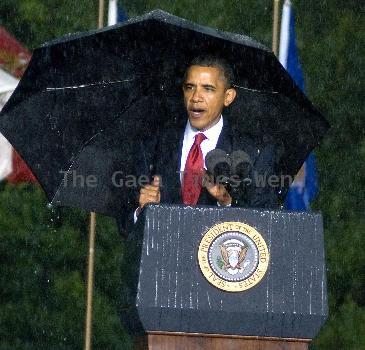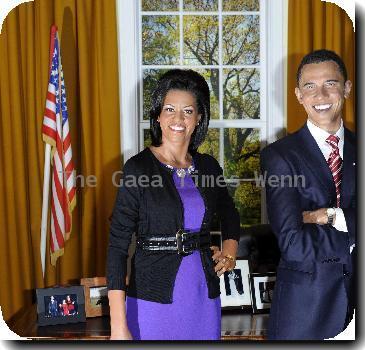House ethics committee announces charges against Rep. Waters, setting up possible fall trial
By Larry Margasak, APMonday, August 2, 2010
Ethics panel: Charges filed against Rep. Waters
WASHINGTON — A House panel announced Monday that Rep. Maxine Waters has been charged with violating ethics rules, setting the stage for a second election-season trial for a longtime Democratic lawmaker and adding to the party’s political woes.
The charges against Waters, a 10-term California congresswoman, focus on whether she broke the rules in requesting federal help for a bank where her husband was a board member and owned stock. She immediately denied the charges.
The House ethics committee’s announcement comes just days after it outlined 13 charges against Rep. Charles Rangel, D-N.Y., including failing to disclose assets and income, delayed payment of federal taxes and improper use of a subsidized New York apartment for his campaign office.
Rangel, the former Ways and Means Committee chairman who has served for 40 years, faces a trial in the fall.
Democrats face certain losses in the congressional elections, the first midterms for President Barack Obama, and the high-profile trials could further damage the party’s political standing.
Republicans quickly jumped on the latest news. The GOP’s House campaign committee released a statement with the headline: “The Dirty Details: Ethics Office Reveals Waters Charges. Panel Has ‘Substantial Reason to Believe’ Dems Have Another Ethics Problem on Their Hands.”
Waters is a senior member of the House Financial Services Committee, which handled the recent rewrite of legislation that regulates financial institutions and has strong protections for consumers.
Rangel stepped aside in March as the chief House tax writer following a negative report on his conduct in a separate ethics case. In addition to taxes, his committee handles trade, portions of health care reform, Medicare and Social Security.
The charges against Waters were filed July 28 by a four-member investigative panel, but not announced until Monday. An eight-member subcommittee of four Democrats and four Republicans will now conduct the Waters trial. The specifics of the allegations won’t be made public until the panel — four Democrats and four Republicans — hold its still-unscheduled organizational meeting.
In a statement, Waters said, “I have not violated any House rules. Therefore, I simply will not be forced to admit to something I did not do and instead have chosen to respond to charges made by the House Committee on Standards of Official Conduct in a public hearing.”
The ethics committee also released a year-old report by the Office of Congressional Ethics — a separate body of non-lawmakers that conducts a preliminary investigation.
That report said that in September 2008, Waters asked then-Treasury Secretary Henry Paulson to have Treasury officials meet representatives from the National Bankers Association, a trade group representing minority-owned banks.
At a meeting and subsequent follow-up activity through Waters’ office, the discussion centered on OneUnited Bank.
Waters’ husband Sidney Williams had been a board member of OneUnited from 2004 to 2008 and, at the time of the meeting, was a stockholder. The report said Waters may have violated House rules by permitting compensation to accrue to her interest and by having a conflict of interest.
Waters said in her statement, “The record will clearly show that in advocating on behalf of minority banks, neither my office nor I benefited in any way, engaged in improper action or influenced anyone.”
She added that she fully disclosed her assets as required by House rules, “even going above and beyond the requirements by disclosing my assets at several Financial Services Committee hearings. In sum, the case against me has no merit.”
She said the accusations stem from her advocacy work for minority communities and businesses.
She said it was the National Bankers Association that requested the meeting with Treasury Department officials. The meeting was held on behalf of the association, not OneBank, she said.
“I followed up on the association’s request by asking then-Treasury Secretary Hank Paulson to schedule such a meeting, as did other members of Congress. Secretary Paulson recognized that the NBA’s concerns about the future of minority banks were valid and arranged for a meeting.
“No benefit, no improper action, no failure to disclose, no one influenced: no case,” said Waters, who chairs the Financial Services subcommittee on housing and community opportunity.
Tags: Barack Obama, Corporate Governance, North America, Political Corruption, Political Ethics, Political Issues, United States, Washington



